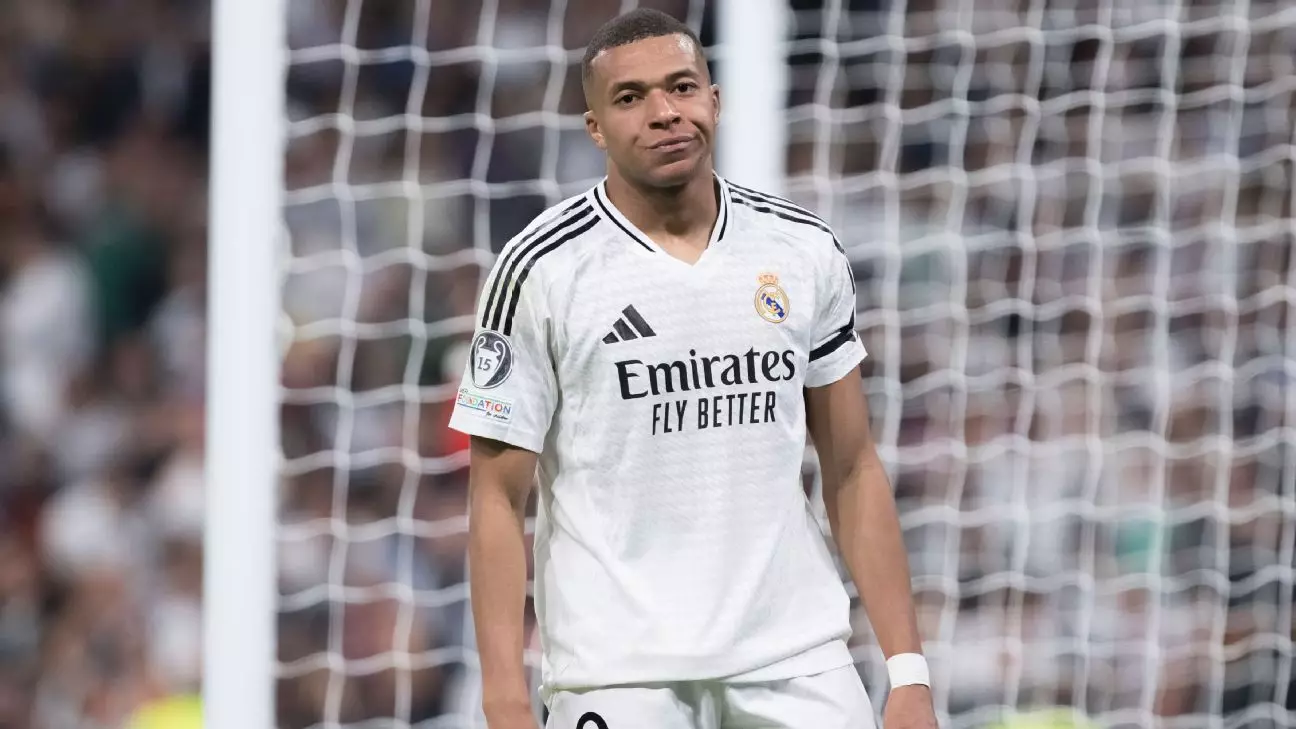Kylian Mbappé’s recent performance at Real Madrid has raised eyebrows, yet Carlo Ancelotti, the team’s head coach, firmly insists that the issues plaguing the club extend beyond individual players. This assertion shines a light on the complex dynamics affecting Madrid’s results, which have seen them falter against formidable opponents, including Lille, Barcelona, AC Milan, and Liverpool. The weight of expectations surrounding a high-profile player like Mbappé can easily cloud judgment, leading to scapegoating in the face of collective underperformance.
In his recent remarks, Ancelotti emphasized that Madrid’s season struggles represent a shared concern rather than a single player’s shortcomings. With only two goals in nine outings for Mbappé, criticism has understandably intensified, particularly following a missed penalty in their Champions League loss. Yet Ancelotti remains resolute, framing the problem as one of team dynamics and cohesion. The ability to rise above individual crises and focus on collective improvement will be crucial for Madrid as they navigate this challenging period.
Madrid’s journey this season illustrates the often-overlooked reality of football: even the most talented players can struggle without the right support system. Ancelotti’s comments reflect a deep understanding of team psychology. He acknowledges that both he and his players must find their best versions, suggesting a quest for improvement that must be pursued at all levels of the organization. This mutual dependence means that the players’ performance and the coach’s strategies are intertwined.
In addition to the pressures of adapting to a new environment, Mbappé’s form has been further hindered by an injury crisis within the squad. The absence of key players like Dani Carvajal and Éder Militão, as well as Vinícius Júnior, has undeniably stifled Madrid’s attacking potential and strategic flexibility. With Rodrygo’s return offering a glimmer of hope, the team is still grappling with a fragmented lineup, exemplifying the impact of injuries on team performance.
While the squad’s struggles are palpable, Ancelotti exhibits a measured response, indicating that he remains focused on nurturing the players and fostering resilience. His approach underscores the need for continuous work, both on a tactical level and a psychological one, to reinvigorate team spirit.
As Madrid continues to chase Barcelona, presently maintaining a four-point gap with a game in hand, the pressure is on for quick improvement. Ancelotti’s declaration that he is not yet contemplating January transfers suggests a commitment to galvanizing the current squad, rather than looking externally for solutions. This philosophy signals confidence in the existing talent, while acknowledging that patience and persistent effort are necessary to reach their potential.
While Kylian Mbappé’s situation garners the headlines, Ancelotti’s insistence on collective accountability highlights a deeper narrative at play within Real Madrid. The team’s struggles are not solely an individual concern but rather a multifaceted challenge that requires a unified response. To thrive amidst adversity, it will take concerted efforts from every corner of the organization to restore their competitive edge.

